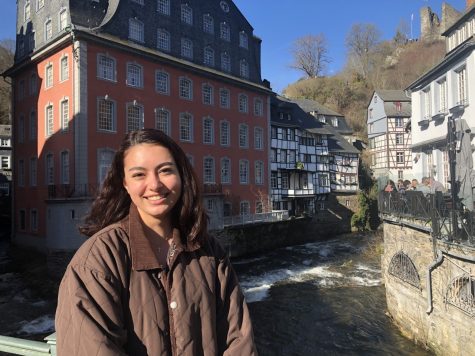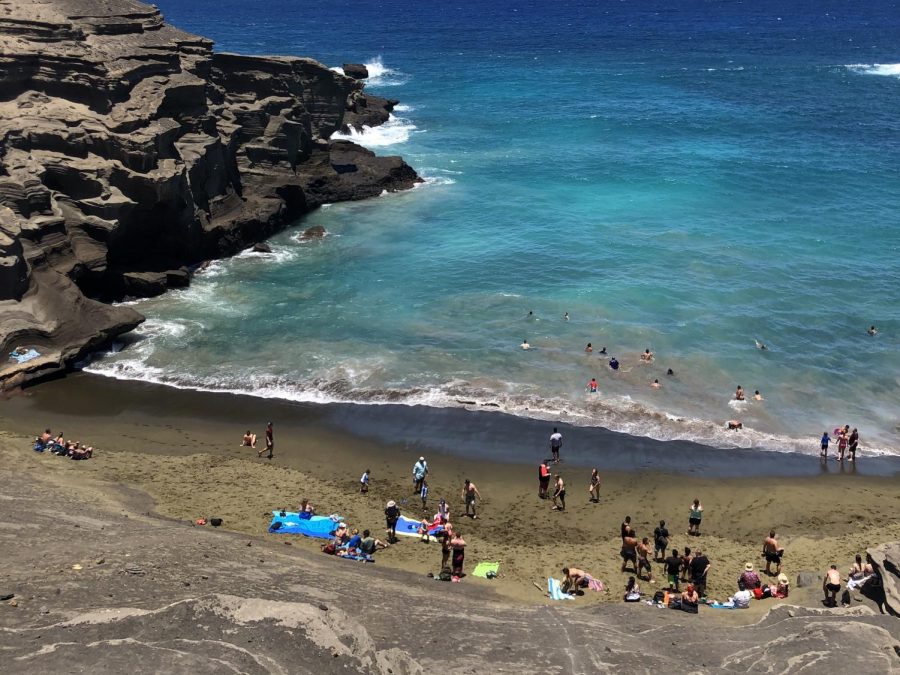Hawaii Steps Towards Safer Sunscreens
Tourists visit year-round to swim in the bright blue waters of Papakōlea Beach on Hawaii island.
The sandy beaches, sunny winters, and smiling faces portrayed in the media draw nearly ten million visitors each year as of 2018, according to Hawaii Tourism Authority. This number increases each year, but it is not the only number increasing in our islands. The population in Hawaii and number of visitors each year has never ceased to increase. While this is good for the economy, it has taken a large toll on the environment in Hawaii.
Although there are many things to do in Hawaii such as hike, shop, and eat, the first thing that comes to most people’s minds when they hear the word “Hawaii” is the beach. Beachfront hotels live off of the vision that tourists have of days spent wading in the waters of Waikiki without a care in the world. Over many years of fulfilling this wish, our beaches and marine life have suffered greatly.
One of the aspects of marine life that is most overlooked yet crucial to the ecosystem is coral reef. Researchers have discovered that two chemicals in sunscreen called oxybenzone, which is found in approximately 70% of sunscreens on the market, and octinoxate are harmful to coral reefs. Even if a person does not wear sunscreen with these ingredients in the ocean, it can still be transported there through the sewage system when showering. In an effort to solve this problem, a ban is being put in place to stop the sale, offer of sale or distribution of any sunscreens containing oxybenzone or octinoxate without a prescription from a licensed healthcare provider. This ban begins on January 21, 2021.
“Small choices that we make in our everyday lives can make a substantial difference when done collectively,” says Kamehameha Schools Marine Biology Teacher, Bethany Kimokeo.
Tourism, although a critical part of our economy, has created difficulty for people, resources, and the environment in Hawaii. The current effect of tourism on the environment is not sustainable and if it persists, there will be no beauty for tourists to see in the future. Even though these changes are not the biggest things that can be done to create positive change, it is a step that is achievable by the general public.
“As you learn more about ocean issues, you can make more informed decisions as a consumer, such as buying reef-safe sunscreen and not using single-use plastics,” says Kimokeo.

EMAIL: [email protected]
Aloha! My name is Mahina Kameʻenui-Becker and I am from Hawaiʻi Kai, Oʻahu. I am a senior and have been a student at Kamehameha since the fourth grade. This is my first year writing for Ka Mo’i, and I wanted to write for this newspaper to be more involved with the development of current events within and outside of our school.


